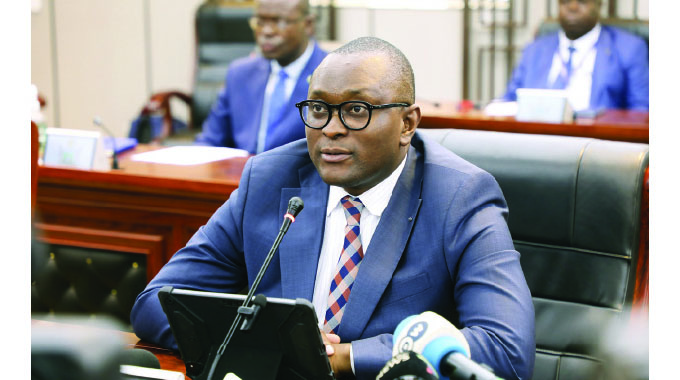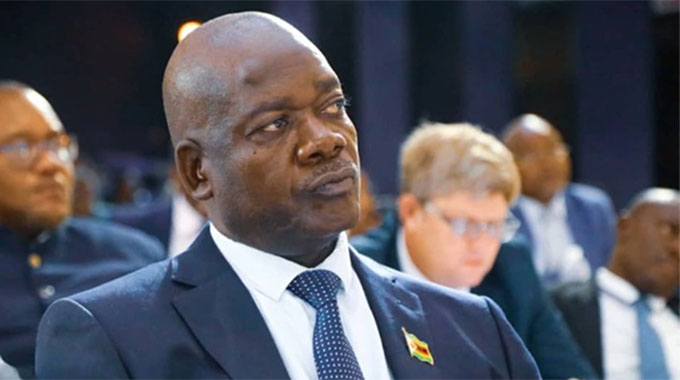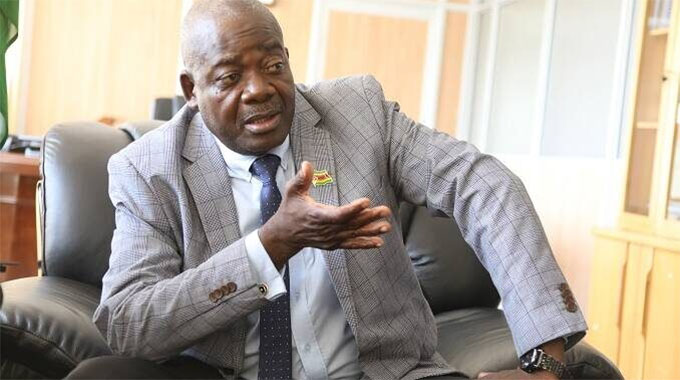Guns that silenced history’s villains
Elliot Ziwira At the Bookstore
Towards the end of the First Chimurenga in 1896, Cecil John Rhodes convened an indaba with Matabele chiefs, and among them was a young traditional leader, who asked a valid and pertinent question: “Where are we to live when it is over? The white man claims all the land” (Vere Stent cited in Julie Frederikse’s “None But Ourselves”, 1990).
History records that Rhodes didn’t flinch when he responded: “We will give you settlements. We will set apart locations for you; we will give you land.”
But unperturbed by the pleading glare from his elders and the noticeable, yet presumed hidden sneer on Rhodes’ face, the young chief retorted: “You will give us land in our own country! That’s good of you . . . Where will you give us land?”
Surprisingly, Rhodes offered them the Matopos, drawing raucous laughter from the chiefs, but the armed young chief persisted, and the colonial godfather felt he had to be stopped, so he cajoled him to put his rifle down if dialogue was to continue.
Still sulking and irked, the young revolutionary, much to the delirium of his kinsmen, pugnaciously, responded: “You will have to talk to me with my rifle in my hand. I find if I talk with the rifle in my hand the white man pays more attention to what I say. Once I put my rifle down, I am nothing. I am just a dog to be kicked,” (Stent in Frederikse, 1990).
Yes, the only language that the racist imperialist Rhodes and his kin and kith, mercenaries among them, understood was the click of the trigger and the sound of gunfire.
As embodied in the young man’s bravery in talking back to empire’s emissary and paragon of colonialism, Rhodes, our forefathers left a revolutionary legacy that inspired the liberation struggle, which culminated in our Independence in 1980.
Their bones, indeed, rose, as Mbuya Nehanda prophesied.
The land, our land, has always been close to our hearts. It is the source of our African pride.
As the countdown to our 40th Independence Day reaches the homestretch, it is time to reflect on the inspiration behind the collective struggle that claimed thousands of our people; gallant sons and daughters, whose bones lie scattered, or are interred in shallow graves across the Motherland and in neighbouring countries; whose dismembered bodies are strewn in disused mines, or were mauled by marauding animals of prey and indeed, those who lie at the National Heroes Acre, and all the provincial heroes shrines across the country.
Rhodes and Founders:
Celebrating villains
So they say they discovered, nay founded a country marked by the hoisting of the Union Jack on Harare Hill on September 12, 1890, and “in the name of Queen Victoria, took possession of Mashonaland, and all other unpossessed land in South-Central Africa that it should be found desirable to add to the Empire” (Martin and Johnson, 1981).
“Unpossessed land?” Really? Rhodes and his so-called Pioneer Column claim to have “found” an unpossessed, and richly endowed land peopled by “half-devil” and “half-children”, as Rudyard Kipling writes in “The White Man’s Burden”.
At this point one may also make reference to Anthony Thomas’ “Rhodes: The Race for Africa” (1997), in which the writer reveals the agnostic and racial inclinations of the imperialistic Cecil John Rhodes, who believed that the colonisation of Africa was good for Africans since the English were a “pure” and “civilised” race.
Because Rhodes was considered a hero, in the colonial sense of the word, and colonial governments celebrated his legacy on Rhodes and Founders Day introduced in 1903, following the colonialist’s death in 1902.
The first settlers were also celebrated as heroic founders of the oppressive colonial country named Rhodesia.
Rhodes and Founders was originally celebrated on July 5 and 6 to coincide with Rhodes’ birthday (July 5), and the date the Pioneer Column crossed the Shashe River into the Promised Land in 1890.
In 1910, Colonel Raleigh Grey, a member of the Legislative Council and OC of Southern Rhodesia Volunteers pointed out that Rhodes and Founders should be celebrated on the first Monday and Tuesday in July. His reason, however, was to allow for four clear days for the annual camp and military training for his Volunteers without courting the ire of employers.
The Legislative Council, however, after careful consideration to one of the Members’ concern that the wording could cause confusion should July 1 fall on a Tuesday as was the case in 1975, moved the celebrations to the second Monday and second Tuesday in July.
Therefore, since 1903 up to 1980, the indigenes were forced to observe the debauchery of villains on their ancestral land; all in the name of Christian “civilisation”.
Independence Day:
Celebrating gallantry
Speaking at a rally at Dewa, Zvishavane on May 15, 1982, then Minister of State in the Prime Minister’s Office Emmerson Mnangagwa (now the President of Zimbabwe) said: “If we forget the struggle and the people who died so that the country can be truly ours, then we shall drift aimlessly.
“We who are alive link with those who have died and those who have yet to be born and we must look after the heritage of our country, and teach our children what that heritage is and what it means.”
He added: “Many of us have been through that period of our history when the struggle was unfolding. We are living in the aftermath of that struggle, and, therefore, a most important responsibility rests upon our shoulders” (The Sunday Mail 16 May, 1982).
He outlined that national shrines like Dewa — permanent symbols of remembrance of those gallant sons and daughters of the soil, who lost lives in the line of duty, would be built at various places across the country to be rallying points for the people on Independence Day and Heroes Day.
With settler rule out of the way, the Patriotic Front Government led by Prime Minister Robert Mugabe, obliterated from the calendar all days that celebrated colonial bastions of oppression, like Rhodes and Founders, which was replaced by Ancestors Day (no longer celebrated).
The idea of a national hero accolade was mooted and passed just after Independence in 1980, leading to the construction of the National Heroes Acre, a revered shrine and pride of the Zimbabwean people, at Warren Hills near Warren Park.
The National Heroes Acre is symbolic of gallantry and selflessness, thus conferment of hero status is the greatest honour that can be bestowed upon brave sons and daughters of Zimbabwe, whose contributions to nationhood remain etched in our collective memory.
Therefore, the Independence we cherish and celebrate each year on April 18, and have been doing so for 39 years now, couldn’t have been possible had it not been for their selflessness and faith in the existence of the nation of their dreams — Zimbabwe.








Comments